Gebäude und die darin verbauten Produkte als Materiallager und Rohstoffquelle für zukünftige Bauvorhaben sehen und nutzen – dies ist einer der Kernpunkte des zirkulären Bauens.
Digitale Dokumentation und Bestandsaufnahme genauso wie Produktdatenbanken geben Auskunft über die verwendeten Materialien und die Rohstoffe von Bauprodukten. Neueste Technik, wie digitales Aufmaß, 360-Grad-Scans und systematische Planung und Erfassung via BIM ermöglichen einen ganz neuen Blick in unsere Gebäude.
Die Lindner Group bzw. Informationen zu unseren Systemprodukten sind in den gängigsten Datenbanken zu finden. Dabei unterscheiden sich Produktdatenbanken wie Building Material Scout oder DGNB und Bewertungsplattformen für Anbieter und Unternehmen, wie z. B. das Nachhaltigkeitsrating von EcoVadis.
Die Produktdatenbank Building Material Scout bewertet Produkte nach LEED-, DGNB-, BNB-, WELL-, BAMB- und BREEAM-Kriterien sowie diversen Ökolabels. Hier finden Sie eine Vielzahl unserer Systemprodukte für Decke, Boden und Wand. Die Plattform bietet auch Projektdokumentationen und Best-Practice-Beispiele mit entsprechender Nachweisführung sowie Informationen zur Einbindung in BIM (Revit) oder für Ökobilanzierungen.
Als Gründungsmitglied der DGNB ist Lindner natürlich auch auf der Produktdatenbank, dem DGNB Produktnavigator zu finden. Die standardisierte Datenabfrage und Aufbereitung ist optimal auf das DGNB-Zertifizierungssystem abgestimmt und bietet somit Erleichterung in der Planung und Orientierung im DGNB-Kosmos.
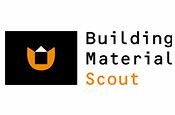 | 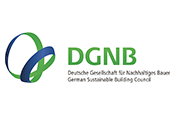 |
EcoVadis bewertet Unternehmen nach den wesentlichen CSR-Auswirkungen (Risiken in Bezug auf Ethik, Umwelt sowie Arbeits- und Menschenrechte) bzw. nach ESG-Kriterien und stellt diese in einer Scorecard dar. Die Methodik basiert auf internationalen Nachhaltigkeitsstandards, wie der Global Reporting Initiative, Global Compact der Vereinten Nationen und der ISO 26000. Die Einstufung in der Scorecard erfolgt anhand von 21 Indikatoren in vier Themenbereichen: Umwelt, Arbeits- und Menschenrechte, Ethik und Nachhaltige Beschaffung.
Ähnlich wie EcoVadis bewertet Integrity Next Unternehmen in allen Nachhaltigkeitsbereichen und deren Maßnahmen in Bezug auf Umweltschutz, Menschen- und Arbeitsrechte, Arbeitssicherheit und Verantwortung in der Lieferkette.
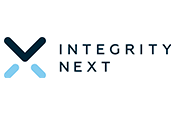 | 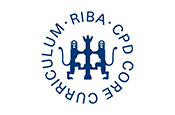 |
Die Online-Cloud-Plattform Madaster geht einen Schritt weiter und begutachtet und erfasst alle materiellen Werte bzw. Immobiliendaten über den gesamten Lebenszyklus eines Bauprojekts. Sämtliche verwendeten Materialien und Bauprodukte und deren Mengen können hier in einem Materialpass dokumentiert, registriert und archiviert werden. Damit geht Madaster einen wichtigen Schritt in Richtung Circular Economy: Durch die genaue Dokumentation können Materialien besser wiederverwendet oder wiederverwertet werden. Zusätzlicher Vorteil für Immobilienbesitzer: Der MadasterMaterial Passport gibt Einblick in die Sachwerte und zeigt den aktuellen Rohstoff-Restwert der Gebäude. Lindner ist von Anfang an als sogenannter „Kennedy“ Partner des Projekts mit dabei.

Concular stellt nicht nur digitale Materialpässe zur Verfügung, sondern dient auch als Materialbörse, als Materialvermittler zwischen Sanierungs-/Rückbau- und Neubauprojekten. Darüber hinaus sieht sich Concular auch als Vermittler zwischen den einzelnen Akteuren im gesamten Bauprozess und will Bauherren, Bestandshalter, Architekten, Bauherren und Hersteller mit dem Partnerschaftsprogramm Circularity an einen Tisch bringen, um das Thema zirkuläres Bauen voranzutreiben.

Die englische Plattform NBS Source gilt als Quelle für Produktinformationen und erweiterten Produktdaten: Die Cloud-basierte Informationsplattform umfasst etwaige Bilder, Kataloge und Datenblätter sowie digitale Objekte und Produktspezifikationen von über 27.000 Produkten und 1.000 Herstellern. Das konsistente, strukturierte Format integriert sich nahtlos in den Projektablauf und spart darüber hinaus Zeit bei der Suche von Produktinformationen.
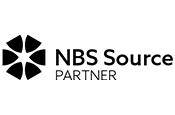 | 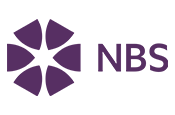 |
BYGGVARUBEDÖMNINGEN ist eine gemeinnützige Organisation schwedischer Bauunternehmer und Grundstückseigentümer, welche einen Standard für die Umweltbewertung von Baumaterialien eingeführt hat. Mit dem Ziel, eine ungiftige und nachhaltige Umwelt zu schaffen, bewertet die Organisation baubezogene Produkte anhand ihres chemischen Inhalts sowie ihre Umweltauswirkungen während des Lebenszyklus. Die Ergebnisse der Bewertungen werden in einer Datenbank gesammelt.
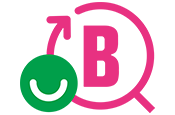 | 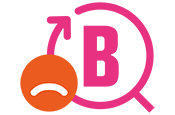 |